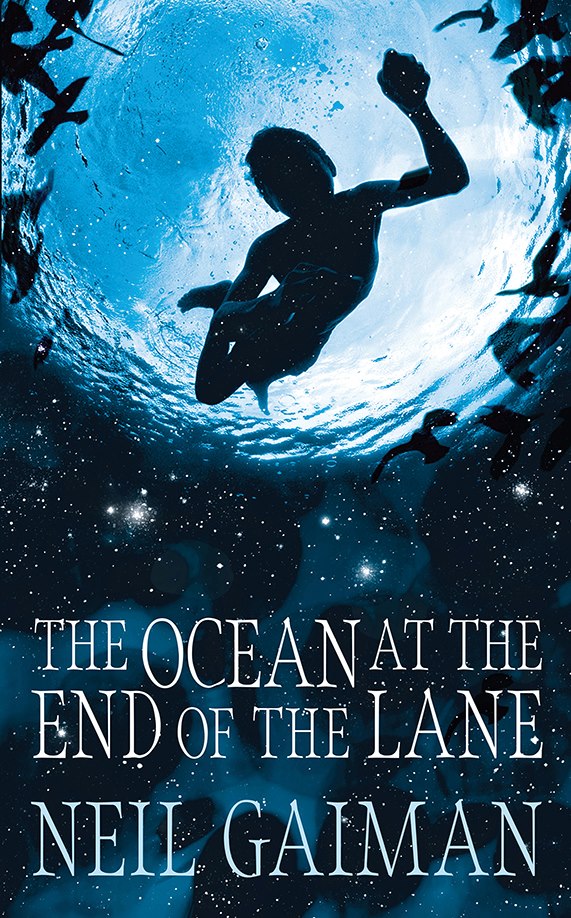
As guest selector at the 2013 Edinburgh International Book Festival, celebrated fantasy author Neil Gaiman was the subject of no less than four events, each celebrating a different aspect of his literary work. Geekzine’s final event of this venerable festival was the one at which he discussed his comic book masterpiece The Sandman, which originally ran from 1989 to 1996, and an elegantly crumpled-looking Gaiman gave a typically engaging and charming performance.
Gaiman made a perfect figurehead for the festival’s ‘Stripped’ theme this year, celebrating as it did comic books as a valid and distinct art-form. Despite the disdain of his school teachers, Gaiman said that he grew up always considering comics to be as valid and legitimate a medium as prose fiction. After being an avid reader of comics as a child, he moved away from them in his teens before being sucked back in, he said, by Alan Moore’s Swamp Thing in the mid-1980s. It was Moore, in fact, who first explained the workings of comic scripts to a flummoxed Gaiman at a convention several years later!

Sandman, Gaiman explained, was a comic book that lived in constant fear of cancellation, at least to begin with. Launched in 1989, this dark and ethereal odyssey chronicling the adventures of the anthropomorphic personification of dreaming must have seemed a strange proposition in a world of technicolor superheroes, gritty as many of them could be in a post-Watchmen world. Slowly, and against everyone’s expectations, sales of the comic began to creep upwards, a trend that continued for years until the series ended in 1996. It has since come to be regarded as one of the greatest comic books ever written, and has drawn praise even from literary icons such as Norman Mailer. What’s more, it also revolutionised the way in which comic books are published. When Sandman was named as Rolling Stone’s “hot” comic of 1989, DC (the title’s publishers) were offered premium advertising space at a knock-down price. With nothing to sell but a prestigious marketing opportunity to take advantage of, the company decided to collect several issues of Sandman into a large-format paperback; it was the first ever collected edition. The collection ended up selling incredibly well, and the rest, as they say, is history.
Since Sandman was one of those rare comic books with a definite ending, were there any ideas left over that Gaiman always wished he’d gotten a chance to use? Yes, he said, a few. Chief among them was the story of what happened to Morpheus (the king of dreams) before the events of the series’ first issue, but this is a story that Gaiman will at last get to tell later this year when the first issue of Sandman: Overture will be published. This new collaboration between Gaiman and artist J.H.Williams III will serve as a prequel to the series’ original run, and also celebrates Sandman‘s 25th anniversary. How does he feel about returning to the world of the dreaming? Nervous, says Gaiman! When he first began the series 25 years ago the readership was tiny, but now he’s acutely aware of millions of people peering over his shoulder as he writes. It will, he says, force him to do a good job.

A few days earlier at the festival, Gaiman was in conversation with fellow author Charles Fernyhough about his new fantasy novel, The Ocean at the End of the Lane. Their discussion focused mainly on the importance (and unreliability) of memory, the novel being based in part on Gaiman’s memories of his childhood in rural Sussex. Even your horrible memories, said Gaiman, are an important part of who you are at a fundamental level. Ocean also owes a debt, as does all Gaiman’s fiction, to the realms of myth and fairy tale, but the influence of these seemingly archaic institutions is, he argues, as strong as ever. There will always be a yearning, even in adult fiction for the “shapes of myth” as he called them, even if they’re interspersed with “boring bits”.
The Ocean at the End of the Lane is available now in hardback. The first issue ofSandman: Overture will be published at the end of October.
Jim would like to thank Charlotte and the team at the Edinburgh International Book Festival press tent for their friendliness, their professionalism and – of course – their endless supply of free coffee over the last month. See you next year!
